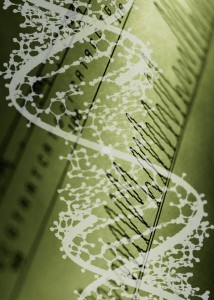 Recently, I received an invitation regarding a free seminar on overcoming anxiety.
Recently, I received an invitation regarding a free seminar on overcoming anxiety.
A poll the organization conducted found the following statistics:
-
66.89% stated that they suffer with anxiety.
30.70% stated that they suffer with feelings of depression.
The Torah says :
See the sun shining.
After rain is the sun.
After night is the day.
After dark is the dawn.
After challenge is the light.
All you need is patience, positive thinking and a prayer.
We will overcome it together and be stronger.
“We” is you and Hash-m. He says that He is with a person in times of distress. G-d is with you.
See the Good in the Tough
All that G-d does is a gift. A tough situation is for us to become stronger and better. Just because it is tough, it doesn’t mean that it is not good.
Build up Confidence by Observing Positive
I read a short story about a boy who was afraid of policemen. When he was about 5 years old when he saw a police officer dragging his father away – traumatizing him.
It marked him throughout his childhood. He finally ends up being helped by a friendly policeman that helps his father fix a flat tire, lets the boy wear his jacket, hat and whistle. This positive experience allows him to overcome his fear.
Imagine Positive Outcomes
To overcome our anxieties we can talk them out with others. We can see how in other times we had a pleasant time in or at least overcame a stressful situation. Stop. Mentally imagine a positive outcome of yourself doing something you fear. Imagine a positive scenario when immersed in anxiety.
Believe in Yourself
Believing in oneself is part of the solution to many personal problems. When one feels that they are subject to the whim of others, one might lose confidence in oneself. The Torah perspective is that any challenge that one faces, one has the power to overcome. If one would not be able to, G-d would not send them this challenge. Knowing you can overcome it helps.
Loving oneself
Loving oneself is also part of the solution to many personal problems. When one recognizes their own self-worth, this helps them to cope and be a proper functioning individual. Look at all your good points and learn to love yourself.
Getting Support from Others
Confiding in others can help one to get a load off one’s back. It can provide solutions and a sounding board for ideas. Support can be either emotional support, material support or spiritual support. Emotional support is when others help you deal with the emotions. Material support is finding a way to solve the problem. Spiritual support is getting guidance from a competent Torah authority.
A Caveat:
Healthy support is from close family members, friends of the same gender or one’s spouse. When one reaches out for support from a person of the opposite gender, it can engender many other problems – like improper feelings of closeness and can eventually cause broken families and marriages. Seek support from those who are proper from the standpoint of the Torah.
Solve the Problem
In business they use problem solving techniques. Here is one of them.
Ask Yourself:
1. What is the Problem?
-
Write it out on paper. Be very Precise – not vague. Don’t write “Abusive Boss” – Write “Boss creates unnecessary pressure on employees by making unreasonable demands and threats.”
2. What are the causes of the Problem?
You might want to use a Fishbone Diagram (see below)
 Fishbone Diagram on Time Wasters
Fishbone Diagram on Time Wasters
3. What are solutions?
Brainstorm for solutions. List all solutions you can think of, without judging them.
4. What are the best Solutions?
Obviously the solutions should be congruent with Torah law.
For Jews – the Halacha from the Shulchan Aruch.
For Gentiles – follow the 7 Noahide laws.
If the solution is not congruent with Torah, the solution might aggravate the situation.
5. What is the best way to implement the solutions?
In business they use a cycle called the Shewart cycle – it is plan, do, check, act.
Planning for change, Do is testing on a small scale, Check – see if there are noticeable results, act upon the trial done.
Spiritual Solutions
Spiritual Problem Solving
-
G-d is good. He guides a person to reach their potential in life. At times a person is off track. So G-d puts blocks or “problems” in their path to bring them back to the proper path. He gives guidance to those he is close to. Our concern is how to interpret the message and redirect our travel to follow the proper path. The proper path is related to Torah.
An example:
A person is yelled at by his wife about his driving over the speed limit. The assumed solution would be to drive at the speed limit. But spiritually, his wife’s shouting at him may be a result of his shouting at his co-worker earlier during the day. Thus the proper solution would be to be more patient with others. Both solutions are worthy.
Positive Prayer
Use pain for positive prayer. If a boss is abusive – pray to Hash-m “Oh G-d please help me to have the strength and courage to overcome the abusive boss. Help me to find a comparable job that will allow me to provide for my family without the abuse.” or the like. The important point is to word your prayer as precisely as possible.
Tehillim
David Hamelech – King David captured his feelings and the collective feelings of all the people of Israel in his Tehillim / Psalms. It is an ode to the Creator of the universe. In times of good and trouble we reach out to Hashem through sincere recitation of Tehillim. All of them are good to recite, yet some are more propice to affect solutions. In some Tehillim Sefarim / Books – they list the Tehillim to recite for respite from particular concerns. Recite the particular Tehillim to alleviate your own concerns and pray.
Wisdom from a Copy Clerk
Once in college, I received a chain letter.
It was finals time.
The letter stated something like: “Make twenty copies of this letter and distribute this to 20 people. If you break this chain, you will not do well in your finals.”
Under the pressure of finals, the letter swayed me to do as it said.
I went to the copy center and asked the clerk to make the copies for me. She said to me “I’ll gladly made the copies, but do you really believe this?”
Her statement woke me up. I threw out the chain letter.
The statement woke me up from a misconception – that grades are correlated with distributing chain letters. They are not.
A lesson learned from that Day
We many times have misconceptions in life. Our goal is to listen to the messages that break us out of them. Consult competent people knowledgeable in Torah. If we follow truth and Torah – they will let us break through deception and set ourselves free.
Positive Messages
We need positive messages to assuage the stress and anxiety we experience. Instead of giving ourselves negative messages – let’s fill our thoughts with and focus on the positive.
 My cousin used to bet with a coworker who would be able guess the date in the month when a full moon would appear.
My cousin used to bet with a coworker who would be able guess the date in the month when a full moon would appear.





 Fishbone Diagram on Time Wasters
Fishbone Diagram on Time Wasters


